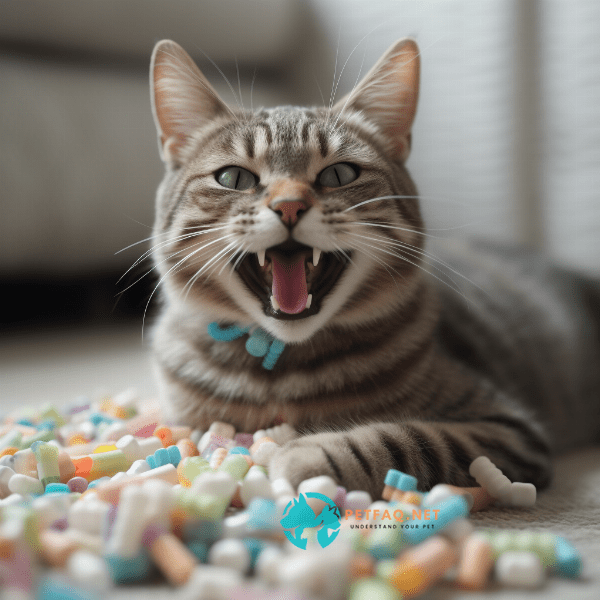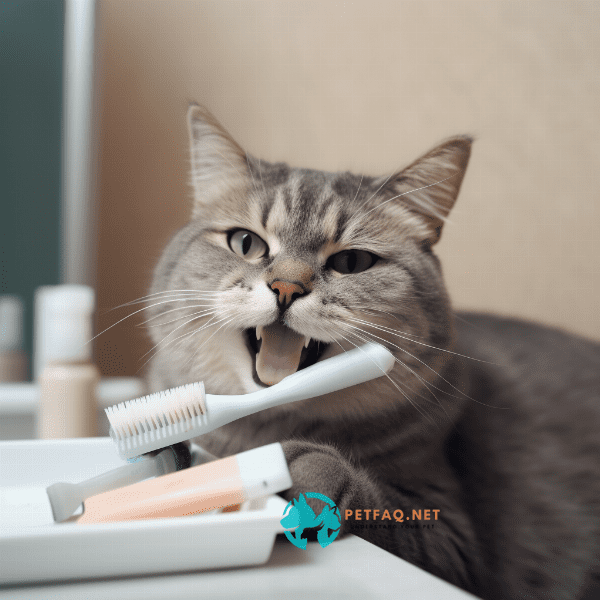Table of Contents
- The Importance of Feline Dental Health
- Symptoms and Causes of Cat Infected Teeth
- Diagnosing Cat Infected Teeth: What to Expect
- Treatment Options for Cat Infected Teeth
- Preventing Cat Infected Teeth: Tips for Pet Owners
- Home Care for Your Cat’s Teeth: Brushing and Beyond
- The Role of Nutrition in Feline Dental Health
- Dental Procedures for Cats: Anesthesia and Aftercare
- When to Seek Veterinary Care for Your Cat’s Dental Health
- Maintaining Your Cat’s Dental Health for a Lifetime
The Importance of Feline Dental Health
As cat owners, we often focus on providing our feline friends with proper nutrition, grooming, and exercise. However, one aspect of cat care that is often overlooked is dental health. Just like in humans, poor dental health in cats can lead to a range of health issues, including Cat infected tooth, which can cause pain, discomfort, and even tooth loss.
Preventing Dental Problems in Cats
Prevention is key when it comes to cat dental health. Regular brushing and dental checkups can help catch any potential dental issues early on, before they become more serious. It’s important to use cat-specific toothpaste and toothbrushes, as human toothpaste can be harmful to cats.
Understanding the Signs of Cat Infected Teeth
One of the most common dental issues in cats is an infected tooth. Symptoms of an infected tooth can include bad breath, bleeding or swollen gums, and difficulty eating. If left untreated, the infection can spread to other parts of the body and lead to more serious health problems.
The Link Between Dental Health and Overall Health
Maintaining good dental health is not just important for your cat’s teeth and gums, but for their overall health as well. Bacteria from infected teeth can spread to other organs in the body, causing infections and inflammation. Additionally, dental disease in cats has been linked to a higher risk of heart, liver, and kidney disease.
In summary, cat dental health is an essential aspect of overall feline care. Preventing dental problems, understanding the signs of cat infected teeth, and recognizing the link between dental health and overall health can help keep your furry friend happy and healthy for years to come.

Symptoms and Causes of Cat Infected Teeth
Cat infected tooth is a common dental issue that can cause pain, discomfort, and even tooth loss in cats. Understanding the symptoms and causes of this condition is essential for maintaining your cat’s dental health.
Symptoms of Cat Infected Teeth
Symptoms of cat infected teeth can vary depending on the severity of the infection. Some common symptoms include bad breath, swollen or bleeding gums, difficulty eating or chewing, and increased drooling. Cats may also paw at their mouth or avoid being touched around the mouth.
If you notice any of these symptoms in your cat, it’s important to schedule a dental exam with your veterinarian as soon as possible.
Causes of Cat Infected Teeth
Cat infected teeth are typically caused by a buildup of plaque and tartar on the teeth. When plaque and tartar are not regularly removed through dental care, they can lead to inflammation and infection of the gums and tooth roots. Additionally, tooth fractures or trauma can also lead to infected teeth.
Certain factors can increase a cat’s risk for developing infected teeth, including age, breed, and diet. Older cats, for example, are more susceptible to dental issues, as are certain breeds such as Persians and Siamese. Feeding your cat a diet high in carbohydrates can also increase the risk of dental problems.
In summary, cat infected tooth can cause a range of uncomfortable symptoms for your feline friend. By recognizing the signs and understanding the causes of this condition, you can help ensure that your cat’s dental health is properly maintained.

Diagnosing Cat Infected Teeth: What to Expect
If you suspect that your cat may have an infected tooth, it’s important to schedule a veterinary appointment right away. Your veterinarian can perform a dental exam and determine the best course of treatment for your furry friend.
Veterinary Exam
During the veterinary exam, your veterinarian will perform a thorough examination of your cat’s mouth and teeth. This may involve sedation or anesthesia to ensure that your cat remains still and comfortable during the exam.
Dental X-Rays
In some cases, dental x-rays may be necessary to diagnose cat infected teeth. X-rays can help identify any areas of decay or infection that may not be visible to the naked eye. They can also help determine the extent of the infection and the best course of treatment.
Treatment Options
If your cat is diagnosed with an infected tooth, treatment options may include antibiotics to clear up the infection, dental cleaning and scaling to remove plaque and tartar buildup, or tooth extraction in severe cases.
Your veterinarian will work with you to determine the best course of treatment based on your cat’s individual needs and the severity of the infection.
In summary, diagnosing cat infected teeth requires a thorough veterinary exam and may involve dental x-rays to determine the extent of the infection. Treatment options vary depending on the severity of the infection, but may include antibiotics, dental cleaning and scaling, or tooth extraction. If you suspect that your cat may have an infected tooth, it’s important to schedule a veterinary appointment right away to ensure proper diagnosis and treatment.

Treatment Options for Cat Infected Teeth
If your cat is diagnosed with an infected tooth, there are several treatment options available to help alleviate their discomfort and prevent further dental issues.
Antibiotics
Antibiotics may be prescribed to help clear up the infection in the affected tooth. Depending on the severity of the infection, your veterinarian may prescribe oral antibiotics or administer them through an injection.
Dental Cleaning and Scaling
In cases where the infection is caused by plaque and tartar buildup, dental cleaning and scaling may be recommended. During this procedure, your veterinarian will clean your cat’s teeth and remove any plaque and tartar buildup. This can help prevent future dental issues and alleviate any discomfort caused by the infection.
Tooth Extraction
In severe cases, tooth extraction may be necessary to treat cat infected tooth. This involves removing the infected tooth to prevent the infection from spreading to other teeth or organs in the body. While tooth extraction may sound daunting, it is a routine procedure that is generally well-tolerated by cats.
Pain Management
Regardless of the treatment option chosen, your veterinarian will also provide pain management to ensure that your cat is comfortable throughout the healing process. This may include pain medication or anti-inflammatory drugs.
In summary, treatment options for cat infected teeth may include antibiotics, dental cleaning and scaling, or tooth extraction. Your veterinarian will work with you to determine the best course of treatment based on the severity of the infection and your cat’s individual needs. Pain management will also be provided to ensure that your cat is comfortable throughout the healing process.
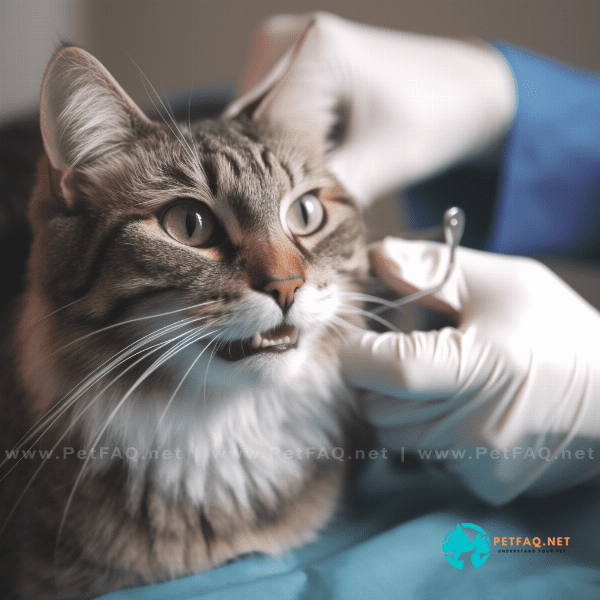
Preventing Cat Infected Teeth: Tips for Pet Owners
Preventing cat infected tooth is essential for maintaining your cat’s dental health and overall well-being. Here are some tips for pet owners to help prevent dental issues in their feline friends.
Regular Dental Cleanings
In addition to regular dental checkups and at-home dental care, regular dental cleanings can also help prevent cat infected tooth. Talk to your veterinarian about scheduling professional dental cleanings for your cat on a regular basis.
In summary, preventing cat infected tooth is essential for maintaining your cat’s dental health. Regular dental checkups, at-home dental care, a dental-friendly diet, and regular dental cleanings can all help prevent dental issues in cats and keep them happy and healthy for years to come.
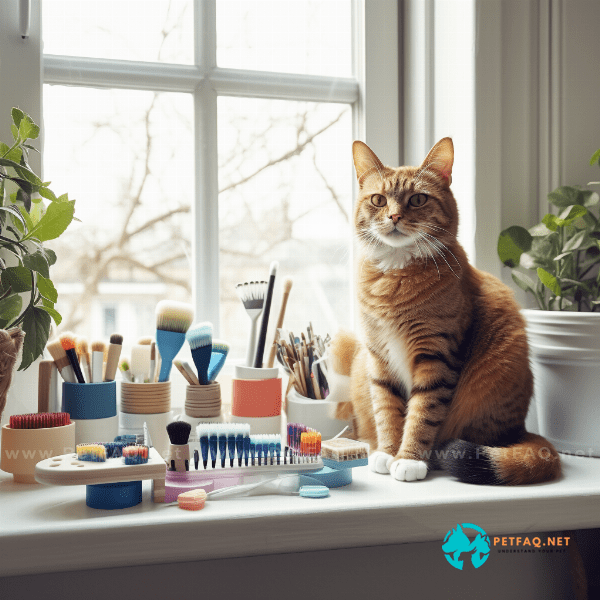
Home Care for Your Cat’s Teeth: Brushing and Beyond
Taking care of your cat’s dental health at home is an important part of preventing cat infected tooth and other dental issues. Here are some tips for home care that go beyond just brushing your cat’s teeth.
Brushing Your Cat’s Teeth
Brushing your cat’s teeth regularly is one of the most effective ways to prevent cat infected tooth. Use a cat-specific toothbrush and toothpaste, and aim to brush your cat’s teeth at least 2-3 times a week. Be gentle and patient, and reward your cat with treats or praise to make the experience more positive.
Dental Treats and Toys
Dental treats and toys can also help keep your cat’s teeth clean and healthy. Look for treats that are designed to help remove plaque and tartar buildup, or toys that encourage chewing and dental health.
Water Additives
Water additives are another option for promoting dental health in cats. These additives can be added to your cat’s drinking water and can help reduce plaque and tartar buildup.
Diet
Feeding your cat a diet that is high in protein and low in carbohydrates can also help promote dental health. Avoid feeding your cat too many treats or human food, as these can contribute to dental issues.
In summary, home care for your cat’s teeth goes beyond just brushing. Dental treats and toys, water additives, and a dental-friendly diet can all help promote dental health in cats and prevent cat infected tooth. Be sure to work with your veterinarian to develop a dental care plan that is tailored to your cat’s individual needs.
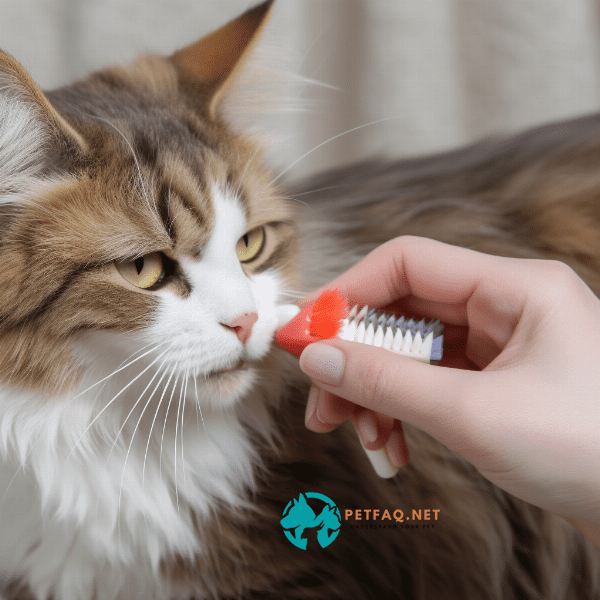
The Role of Nutrition in Feline Dental Health
A healthy diet is important for overall feline health, including dental health. Proper nutrition can help prevent cat infected tooth and other dental issues. Here’s what you need to know about the role of nutrition in feline dental health.
Dental-Friendly Diet
Feeding your cat a dental-friendly diet is key for preventing cat infected tooth. A diet that is high in protein and low in carbohydrates can help reduce plaque and tartar buildup and promote healthy teeth and gums. Look for cat food that is specifically formulated for dental health, or talk to your veterinarian about the best diet for your cat’s individual needs.
Avoiding Dental Health Hazards
Certain foods can contribute to dental issues in cats and should be avoided. Soft or sticky foods, for example, can stick to your cat’s teeth and lead to plaque and tartar buildup. Additionally, human foods that are high in sugar or carbohydrates should also be avoided, as they can contribute to dental issues.
Providing Fresh Water
Providing your cat with fresh water is also important for dental health. Water helps wash away food particles and bacteria that can contribute to dental issues. Be sure to provide your cat with clean, fresh water at all times.
In summary, nutrition plays an important role in feline dental health. Feeding your cat a dental-friendly diet, avoiding dental health hazards, and providing fresh water can all help prevent cat infected tooth and other dental issues. Be sure to work with your veterinarian to develop a nutrition plan that is tailored to your cat’s individual needs.
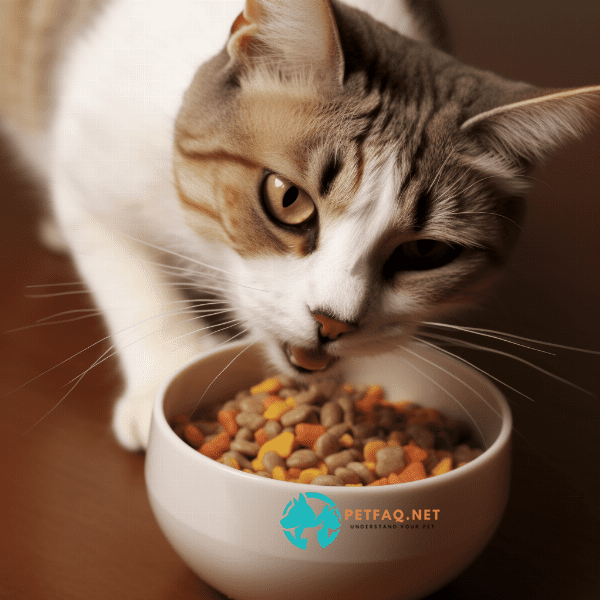
Dental Procedures for Cats: Anesthesia and Aftercare
If your cat requires a dental procedure, such as tooth extraction or dental cleaning and scaling, it’s important to understand the anesthesia and aftercare process. Here’s what you need to know.
Anesthesia for Dental Procedures
Many dental procedures for cats require anesthesia. This is because the procedures can be uncomfortable or even painful for your cat, and anesthesia ensures that they remain still and comfortable during the procedure.
Before administering anesthesia, your veterinarian will perform a thorough physical exam and run blood tests to ensure that your cat is healthy enough for anesthesia. During the procedure, your cat’s heart rate, blood pressure, and other vital signs will be closely monitored to ensure their safety.
Aftercare for Dental Procedures
After a dental procedure, your cat will need some time to recover. Your veterinarian will provide instructions for at-home care, including pain management, feeding instructions, and any necessary medications.
It’s important to closely monitor your cat during their recovery period and watch for any signs of complications, such as bleeding, swelling, or infection. Contact your veterinarian right away if you notice any concerning symptoms.
Follow-Up Dental Care
After a dental procedure, your cat may require follow-up dental care to ensure that their teeth and gums are healing properly. This may include dental checkups, at-home dental care, and additional dental procedures as needed.
In summary, dental procedures for cats may require anesthesia, and aftercare is crucial for ensuring a smooth recovery. Be sure to closely follow your veterinarian’s instructions for at-home care and monitor your cat closely for any signs of complications. Follow-up dental care may also be necessary to maintain your cat’s dental health.
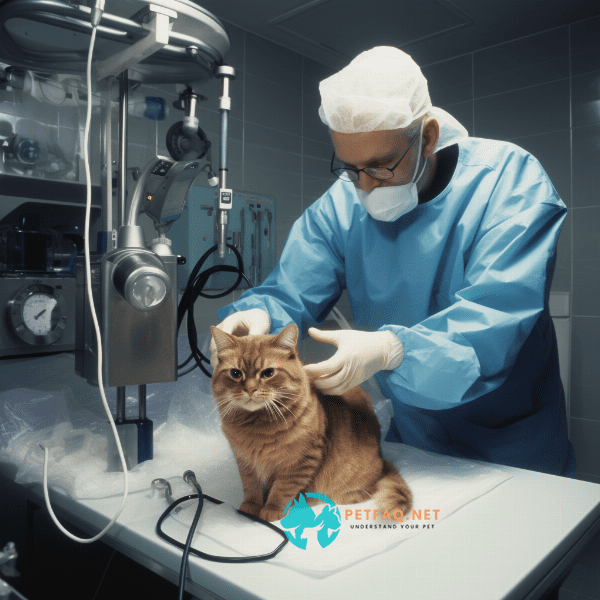
When to Seek Veterinary Care for Your Cat’s Dental Health
Regular dental checkups and at-home dental care are important for maintaining your cat’s dental health. However, there are times when you may need to seek veterinary care for your cat’s dental issues. Here are some signs that it’s time to schedule a veterinary appointment.
Signs of Dental Issues
If you notice any signs of dental issues in your cat, such as bad breath, swollen or bleeding gums, difficulty eating or chewing, or pawing at their mouth, it’s important to schedule a dental exam with your veterinarian right away. These signs may indicate cat infected tooth or other dental issues that require prompt treatment.
Age and Breed
Certain factors can also increase your cat’s risk for dental issues. Older cats and certain breeds, such as Persians and Siamese, are more susceptible to dental issues and may require more frequent dental checkups.
Changes in Behavior
If you notice any changes in your cat’s behavior, such as decreased appetite or increased irritability, it may be a sign that they are experiencing dental pain. Schedule a veterinary appointment to have their dental health evaluated.
In summary, it’s important to seek veterinary care for your cat’s dental health when you notice signs of dental issues, changes in behavior, or if they are older or a certain breed. Early detection and treatment can help prevent cat infected tooth and other dental issues from developing into more serious problems.
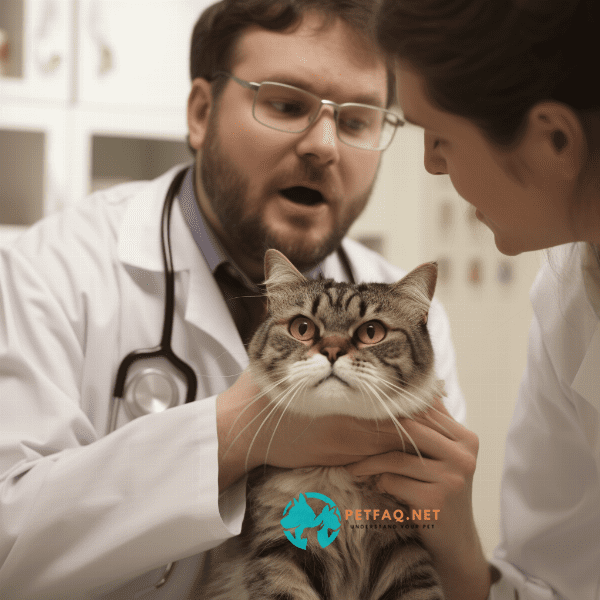
Maintaining Your Cat’s Dental Health for a Lifetime
Maintaining your cat’s dental health is essential for their overall well-being. Here are some tips for ensuring that your cat’s teeth and gums stay healthy throughout their lifetime.
Regular Dental Checkups
Regular dental checkups are key for maintaining your cat’s dental health. Aim to schedule a dental exam for your cat at least once a year, or more frequently if they are older or have a history of dental issues.
At-Home Dental Care
At-home dental care is also important for preventing cat infected tooth and other dental issues. Brush your cat’s teeth regularly, feed them a dental-friendly diet, and provide them with dental treats and toys.
Watch for Signs of Dental Issues
Be on the lookout for signs of dental issues, such as bad breath, swollen or bleeding gums, difficulty eating or chewing, or pawing at their mouth. If you notice any of these signs, schedule a veterinary appointment right away.
Follow Veterinary Recommendations
Follow your veterinarian’s recommendations for dental care, including any recommended dental procedures or follow-up care. Work with your veterinarian to develop a dental care plan that is tailored to your cat’s individual needs.
In summary, maintaining your cat’s dental health requires regular dental checkups, at-home dental care, watching for signs of dental issues, and following veterinary recommendations. By prioritizing your cat’s dental health, you can help prevent cat infected tooth and other dental issues and ensure that they stay happy and healthy for years to come.
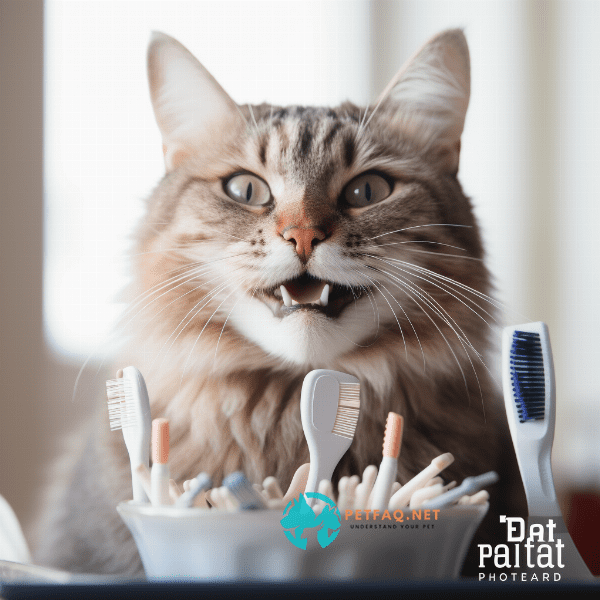
Frequently Asked Questions (FAQs) about cat infected tooth:
1. Are some cat breeds more prone to tooth infections than others?2. How often should cat teeth be cleaned to prevent infections?
3. How long does it take for a cat's infected tooth to heal after treatment?
4. Can an infected tooth in a cat lead to other health problems?
5. Are there any home remedies for treating a cat's infected tooth?


